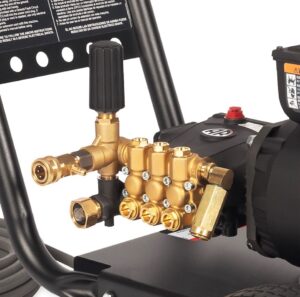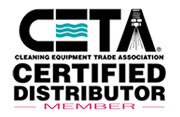
High-pressure pumps play a crucial role in various industries, from manufacturing and agriculture to oil and gas. These powerful pumps are designed to handle demanding applications that require high-pressure levels. Whether you are new to the world of high-pressure pumps or looking to upgrade your current system, this article will provide you with all the essential information you need to know.
What Are High-Pressure Pumps?
High-pressure pumps are specially designed to generate significant amounts of pressure to move fluids through a system. These pumps are commonly used in applications where high pressure is required, such as water jet cutting, pressure testing, car wash systems, and more.
High-pressure pumps are essential in various industries and come in several types, including reciprocating pumps, which use a back-and-forth motion to create pressure; centrifugal pumps, which utilize rotational kinetic energy to move fluid; and diaphragm pumps, which employ a flexible diaphragm to pump liquids. Additionally, there are wobble plate pumps, which have an oscillating plate that drives the pumping action, axial cam pumps that convert rotational motion into linear displacement, and triplex plunger pumps, known for their durability and efficiency due to their three plungers. Each type of pump has its unique features and benefits, making them suitable for a wide range of applications, from agriculture and construction to manufacturing and oil extraction.
When Might You Need to Replace a High-Pressure Pump?
Like any other equipment, high-pressure pumps have a limited lifespan and may need replacement over time. There are several signs that indicate it might be time to replace your high-pressure pump. If you notice a decrease in performance, increased energy consumption, leaks, unusual noises, or frequent breakdowns, these could be red flags that your pump needs replacing. Regular maintenance and inspection can help prolong the life of your pump, but eventually, all pumps will need replacement.
What to Look for When Choosing a High-Pressure Pump
When selecting a high-pressure pump for your specific application, there are several crucial factors to consider to ensure optimal performance and longevity of the equipment. First and foremost, you need to determine the flow rate and pressure requirements of your system. This involves understanding the specific demands of your application, such as the volume of fluid to be moved and the pressure needed to achieve desired outcomes.
It’s essential to choose a pump that not only meets these requirements but also aligns with other important factors. Material compatibility is critical, as the pump must be able to handle the fluids it will be moving without suffering from corrosion or degradation. Additionally, consider the power source options available—whether an electric or diesel-powered pump is more suitable for your situation based on factors like availability of power, mobility needs, and operating environment.
Maintenance Tips for High-Pressure Pumps
Maintenance requirements should also be factored into your decision-making process. Some pumps may require more frequent servicing or specialized care, which can impact your operational efficiency. Lastly, evaluate the cost, not just of the initial purchase but also of long-term operation and maintenance, to ensure it fits within your budget.
Proper maintenance is key to extending the life of your high-pressure pump and ensuring optimal performance. Regularly inspecting the pump for signs of wear and tear, checking fluid levels, cleaning filters/screens, and lubricating moving parts as needed can help prevent costly breakdowns. Additionally, following the manufacturer’s recommended maintenance schedule and guidelines will help keep your pump running smoothly.
Conclusion
High-pressure pumps play a vital role in various industries that rely on high-pressure applications, such as oil and gas, chemical processing, and water treatment. These pumps are designed to handle the demands of moving fluids at elevated pressures, making them essential for tasks like fluid transfer, injection, and circulation. By adhering to these guidelines, industries can maximize performance and minimize downtime, ultimately leading to increased productivity and safety.
If you need a high-pressure pump or other equipment, contact us today.

